A two-year-old crying in the night is not an uncommon occurrence for a parent — a bad dream or runny nose may be to blame.
But her father Issa and mother Hassina knew something was off when their daughter Nabila’s breathing became shallow, and she grew extremely weak.
“We were scared,” says Issa.
Nabila was born in 2017 seemingly healthy, but a test after she was born revealed Nabila has Sickle Cell Disease — a group of conditions in which red blood cells are irregularly shaped making it easier to block and clog blood vessels and can cause the blood cells to break down faster.
Nabila appeared stable until January 2020, when at two years old, she began struggling to breathe. Issa took Nabila to HSC Children’s Hospital where she had tests – X-Rays and CT scans — and finally an MRI revealed she’d had a stroke.
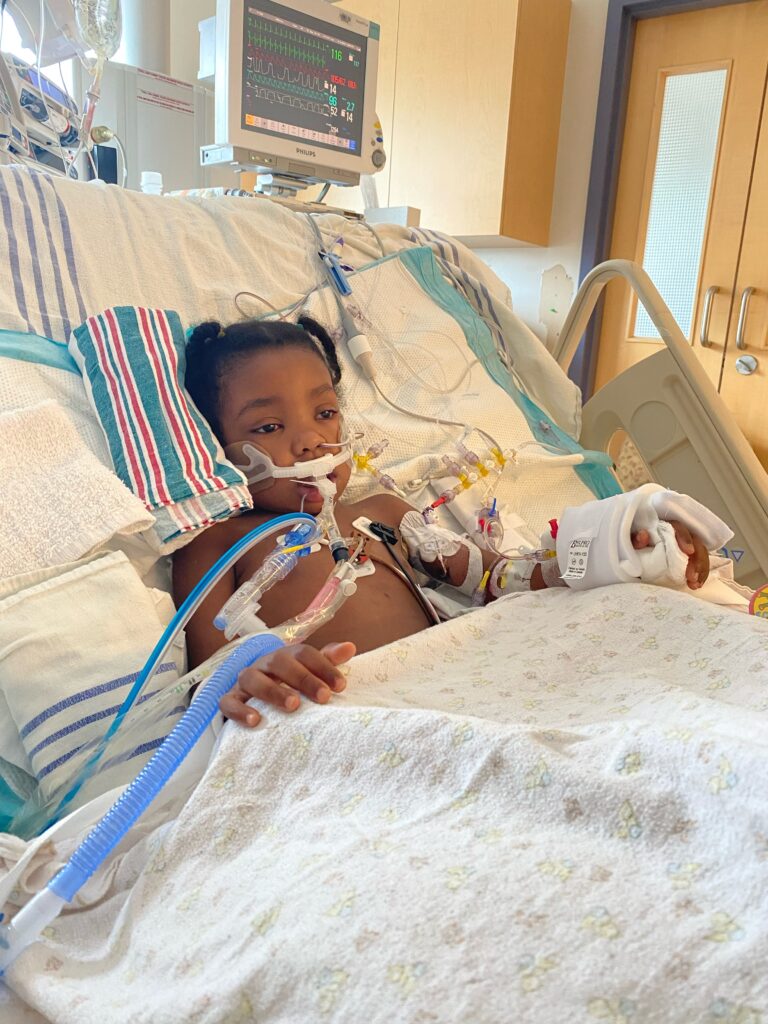
“That’s when everything changed,” says Issa. “She had wires and monitors everywhere and they rushed her to the PICU [Pediatric Intensive Care Unit].”
Nabila fell into a coma for two and a half weeks. She was unable to breathe on her own, so she was intubated and on a mechanical ventilator to move air in and out of her lungs.
“It took a long time to see at least one sign of vital body movement,” says Issa.
The stroke had damaged the back part of Nabila’s brain, the Cerebellum, which controls movement and breathing.
“We were lucky she wasn’t paralyzed,” says Issa.
Nabila was released from the hospital in April 2020 — an early and intense time of the COVID-19 pandemic.
Nabila couldn’t walk and because of health restrictions, she wasn’t able to receive physiotherapy at a clinic — Issa and Hassina had to work through Nabila’s physiotherapy together at home.
When Nabila came back to the hospital in 2021, the doctors who treated her couldn’t believe she was walking.
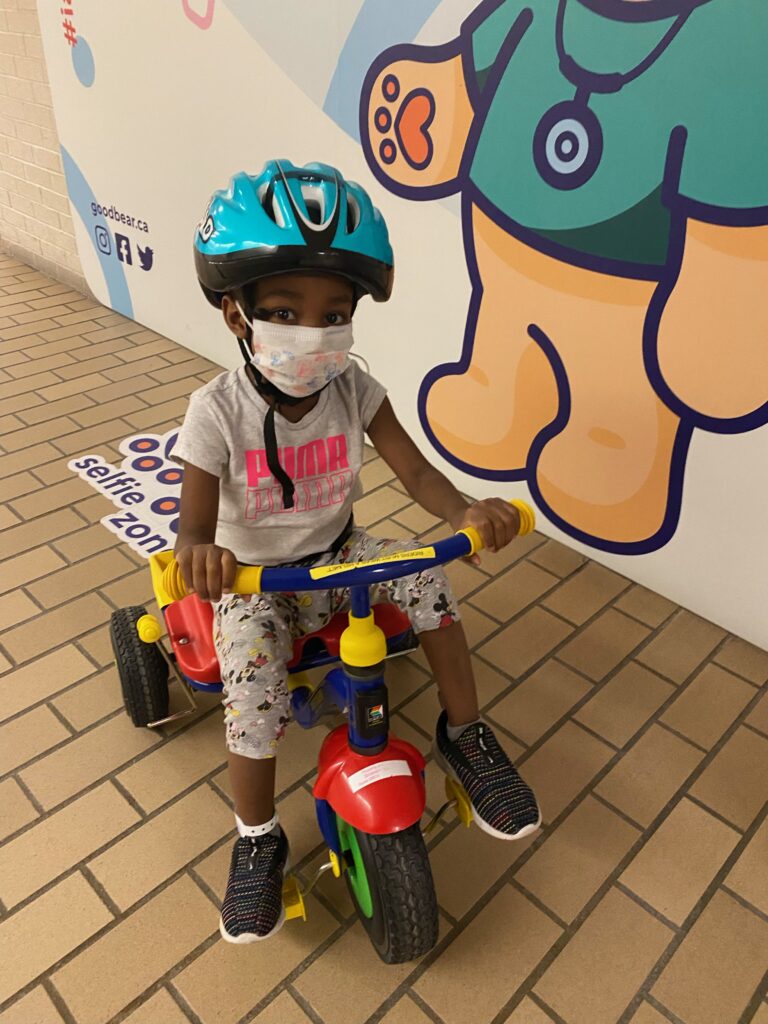
“Her energy wasn’t as normal as it was before, but she was able to get her life back in a way and do many different things like riding a bike and swimming,” says Issa.
Nabila continued to need support at HSC Children’s, with countless hospital stays due to her condition. In 2021 she started blood transfusions, and her next option was to go through a bone marrow transplant.
In May 2022, Nabila received a successful bone marrow transplant from her mother and recovered well. She stopped needing frequent blood transfusions and was breathing on her own.
Nabila continues to battle frequent infections and illnesses, such as pneumonia, possibly due to complications with her immune system and will require care as she grows.
At six years old, Nabila has spent a great deal of time at HSC Children’s.
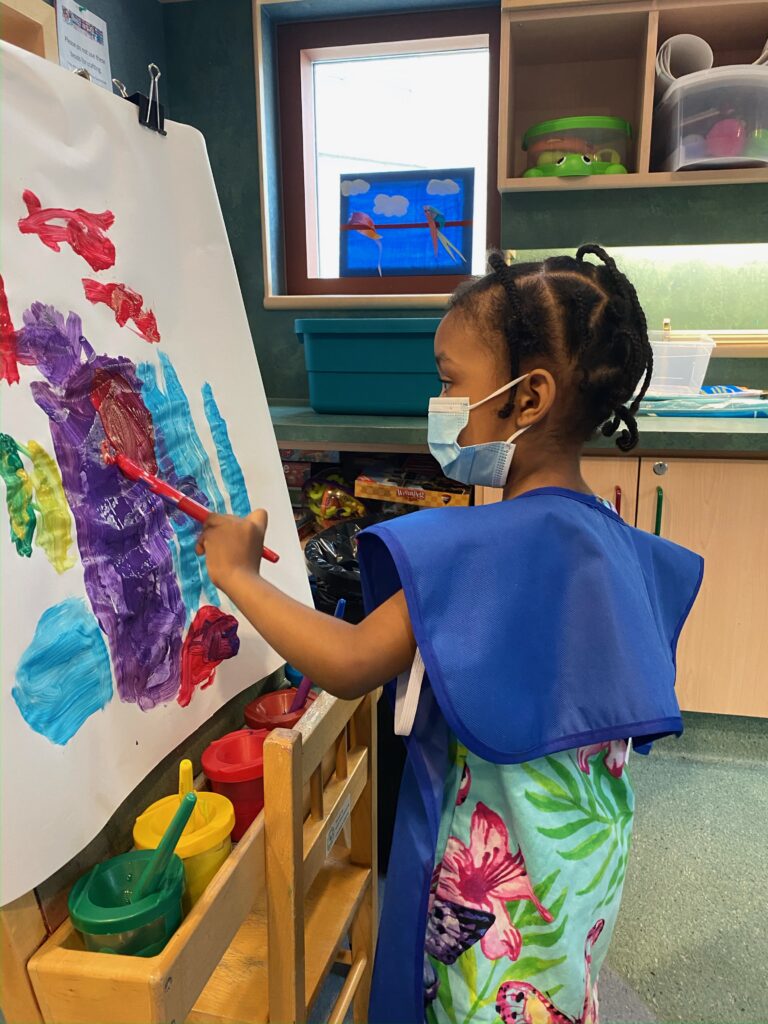
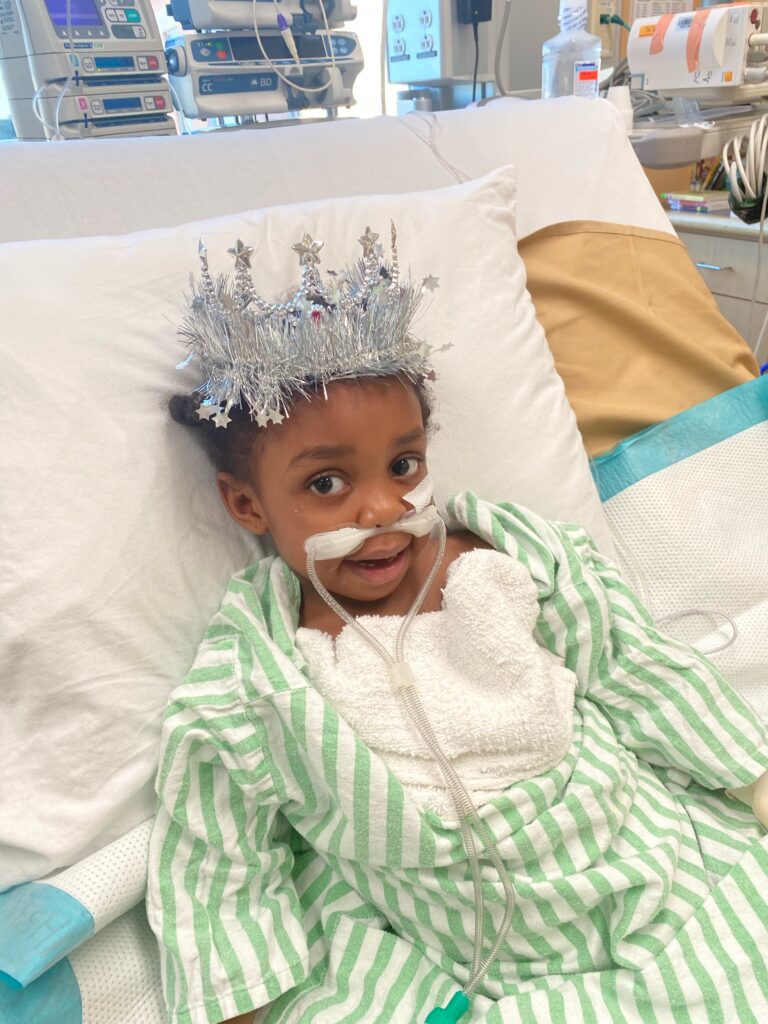
“She recognizes it as her second home,” says Issa. “Nabila calls it ‘doctors’ home’.”
Issa credits HSC Children’s staff and comforts like the playroom, CHTV, and the prayer room for making the hospital welcoming for families that need to be here. Issa and his family are Muslim and says the prayer room is important to them.
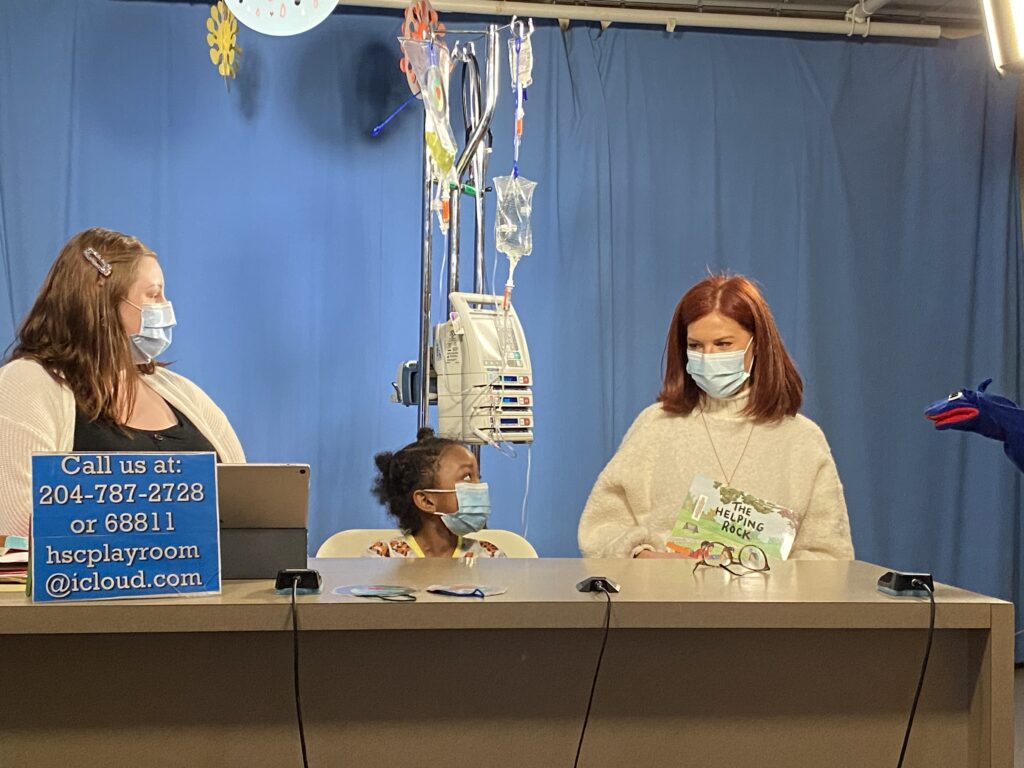
Issa and Hassina were both born and raised in East Africa. Issa moved to Winnipeg in 2010 and Hassina re-united with Issa in Canada in 2014. Nabila also has an older brother and younger sister.
Nabila’s family is grateful for the team at HSC Children’s.
“People may think healthcare workers are just doing their job to make a living, but there’s more than that behind it,” says Issa. “It takes a lot of dedication and a big heart to be able to do the job the way it’s supposed to be done.”
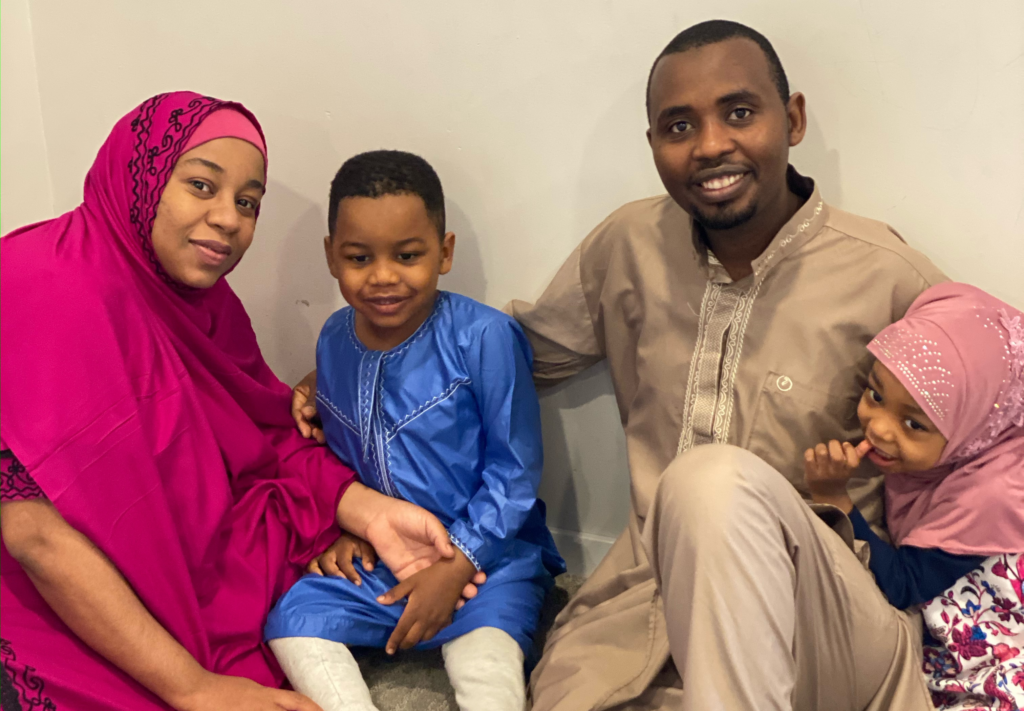
Stay in touch!
Sign up for e-news to get updates on the latest events, news, and stories.
sign up for the newsletter